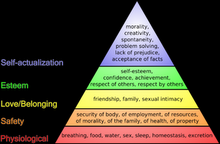My opinion on 2 topics raised… Controversy between the expanding pie vs. the fixed pie – is there an end point to our resources? I believe not – is there an end to how much someone can smile, no way – if you wanna smile you’ll find a way, if we want everyone to be healthy - we will find a way. Also, I loved it when Professor Shahi said, "a true way to measure the test of human development is to look at the wealthiest children and the poorest children in a region – and if both have a chance to survive – then the society has a chance to thrive" (but I guess this only is possible in communist societies where everyone is given the same opportunities to flourish).
Globalization is a controversial topic because overall its implications are beneficial to those who follow suit with emerging trends, but it can also be detrimental to those who aren’t able to broaden their horizons and go global. The point to take away from this lesson was that we, as members in the public health profession cannot be negligent to addressing all side effects of globalization (inequalities in sanitation, life expectancy, access to healthcare, safety). We must acknowledge and create policies so that adopting globalization can go smoothly. It will be essential to continue to globally research and respect the benefits of globalization for as long as we can work together as a world to be healthy and safe together.
https://blackboard.usc.edu/courses/1/20071_pm_565_41128/content/_267071_1/Emerging%20Trends%20in%20Health%20slides%202.ppt?bsession=200346&bsession_str=session_id=200346,user_id_pk1=2023,user_id_sos_id_pk2=1,one_time_token=#263,8,The North/South; Rich/Poor Divides
Our class discussions this week were very interesting because we talked about how globalization can bring about two types of implications when introduced to a society. It can first bring about change in a positive manner and this happens … so long as the people “ride the wave,” welcoming and adjusting to new ideals such as innovations in technology like industrialization with factories. The other way globalization affects people is negatively. This happens when resisting change causes people to become marginalized in ways both socio-economically, politically and they then suffer. This is an issue is when a society has both innovators and laggards within the same boundaries. A gap evolves to separate the innovators from the laggards which creates a rich/ poor, urban/rural, north/south divide – which affects everything from human development to safety and security, or as Dr. Shahi said, “The haves, and the have-nots.”
Church in Antigua

Subscribe to:
Post Comments (Atom)
















2 comments:
Hey Alexis. Great posts and pics & very interesting links. :P Just a quick note about globalization and change, I feel that it's the other way around. I feel that people become left out and marginalized when they do not actively participate in the change. For example, in our rapidly advancing technological era, we have accepted technology and have made the effort to learn to use and apply the various gadgets and gizmos. Thus, in perspective, I feel that communities must accept and actively participate in and contribute to globalization, the community, and the economy.
I agree with Lawrence. If you look at Asian countries such as Thailand, China or Japan, they all embraced new technologies that were being developed in the 20th century and have continued to compete to keep developing new innovative technologies. They have risen to become major global contributors, and it is because they have actively participated in the change. I think that developing countries governments need to invest in involving their people with these technologies so that they do not become marginalized. I agree with your outlook that there isn't necessarily a fixed pie and limit on our resources. It is just a matter of being able to reach out and have everyone capable and included to have a slice.
Post a Comment